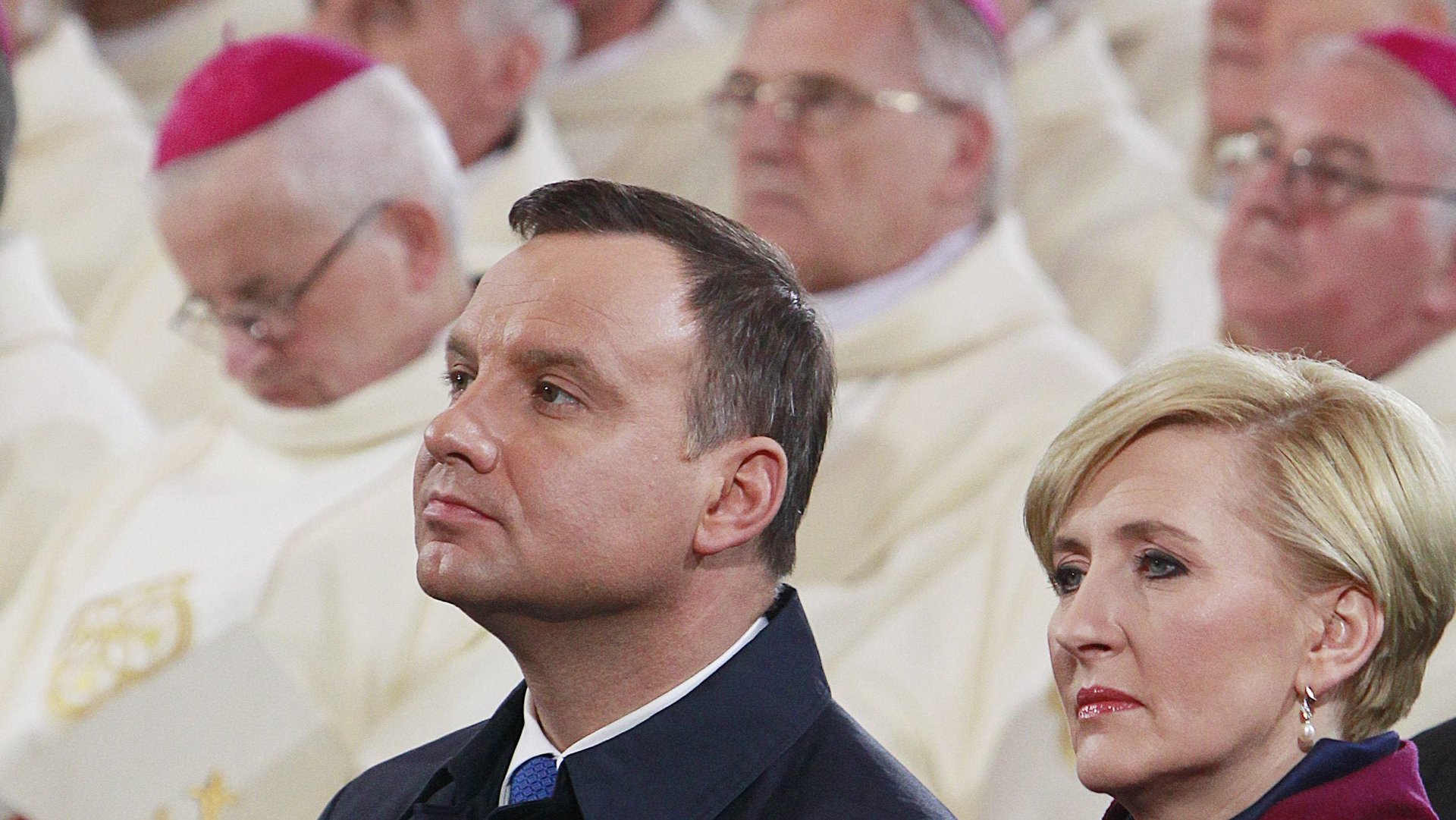The Polish church uses the words of pope John Paul II to applaud the president’s court-law veto
As tens of thousands of Poles protested against the government’s attempts to gain control over the country’s judiciary over the past week, the politically influential Catholic church that is friendly to the ruling populist party has refrained from taking sides. But after president Andrzej Duda, in a surprise move, announced on Monday (July 24) that he would veto two of the three controversial bills, the church decided to weigh in.


As tens of thousands of Poles protested against the government’s attempts to gain control over the country’s judiciary over the past week, the politically influential Catholic church that is friendly to the ruling populist party has refrained from taking sides. But after president Andrzej Duda, in a surprise move, announced on Monday (July 24) that he would veto two of the three controversial bills, the church decided to weigh in.
Archbishop Stanisław Gądecki, president of the Polish bishops’ conference sent a letter to Duda, in which he thanked the president, citing the words of the late pope John Paul II, the Polish pontiff, who is revered in his homeland. In an address (link in Polish) to an Italian judges’ association in 2000, John Paul said that the balance between the judiciary, executive, and legislative branches, “each of which has its designated tasks and responsibilities, so that a one never dominates over the other, is a guarantee of the proper functioning of democracy.”
Duda’s announcement signals a rift with Law and Justice, the party he hails from and which has majority in the Polish parliament. Until now his role has largely boiled down to signing the barrage of legislation Law and Justice, and its all-powerful leader Jarosław Kaczyński, has sent his way. The party’s moves over the past two years, supported by its base, are viewed as an assault on democratic institutions by the opposition and by observers in the west. Facing pressure from the European Union and the masses on the streets, many of them young people, Duda broke party ranks.
He did not, however, cave into the “3x veto” demand from the protesters and opposition, declaring he would sign a law reforming the local judiciary that would allow the justice minister to select judges in lower courts, and even assign them to specific cases. He also asked the parliament to rewrite the vetoed bills within two months.
Gądecki in his letter stipulated that reforming the judiciary remains a “responsibility” and that the democratically elected government, while controlled by the people, should have the freedom to pursue “worthy” goals it set for itself.
The church and the conservative Law and Justice party have long had a cozy relationship. The party was elected to power in 2015 with outward support from priests in rural churches. Bishops have also spoken out against anti-government protests in the past.